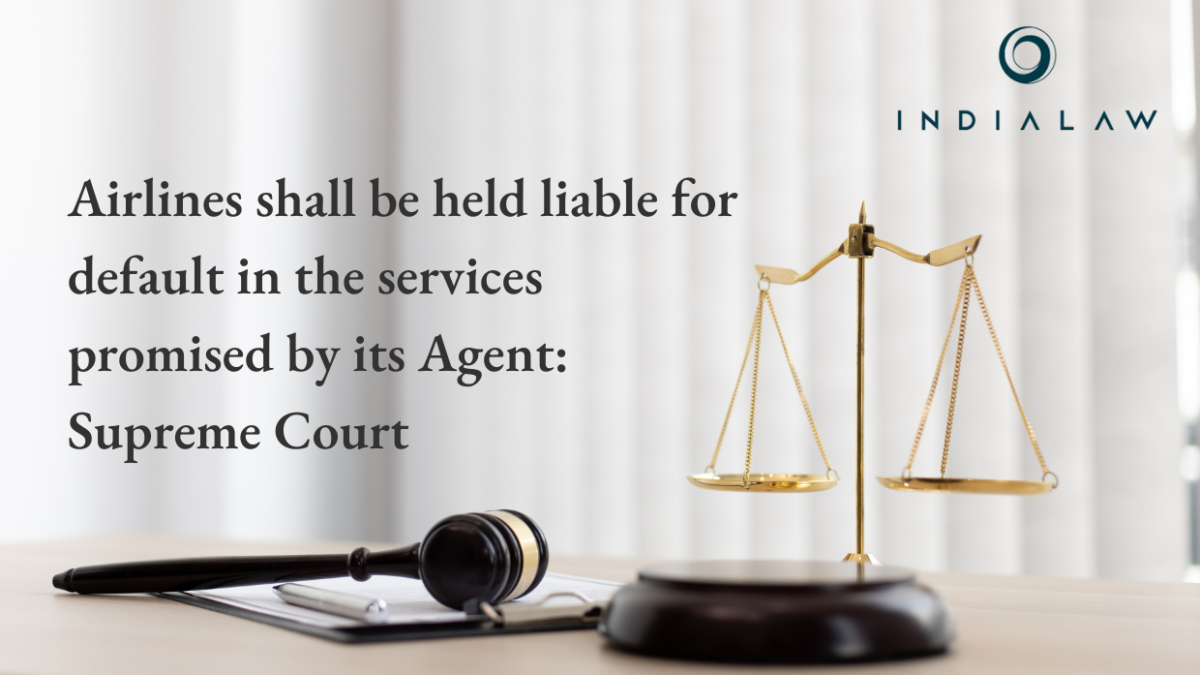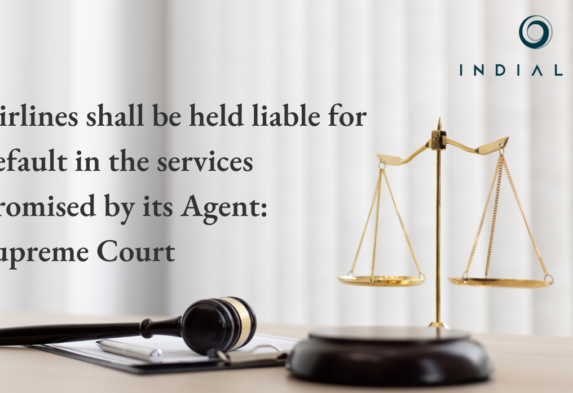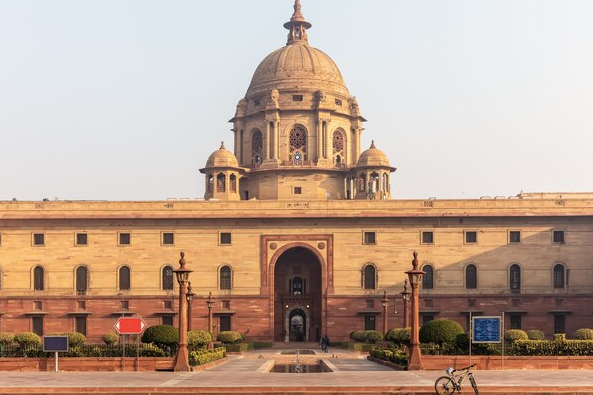Airlines shall be held liable for default in the services promised by its Agent: Supreme Court


The Hon’ble Supreme Court (“SC”) in a recent notable judgment held that the Airlines shall be bound by the time schedule promised by its agent.
In the instant case the Appellant, Rajasthan Art Emporium booked shipments with the Respondent No. 1, Kuwait Airways through its Agent – the Respondent No. 2, Dagga Air Agents. The Agent-Respondent at the time of booking had issued a time schedule and agreed to deliver the consignment in 7 days. As consignments’ delivery was delayed and certain goods were lost during transit, the Appellant approached the NCDRC seeking refund of the fair for the consignment, compensation of Rs. 20 lakhs for loss of business and reputation as well as the value of the goods short delivered. The NCDRC passed an order allowing damages for the loss of goods in accordance with Rule 22 of Carriage by Air Act, however refused to grant any relief for the delay in delivery, in absence of communication from the Respondents promising the date of delivery.
The Appellant challenged the aforesaid Order in Appeal and Hon’ble Supreme Court remarking that the issue relating to delay caused in delivery of the consignment was decide without taking into account the evidence on record, remanded the Complaint back to the NCDRC to re-determine the said issue.
As a result of the reconsideration, the impugned order was passed wherein the NCDRC held that there was delay in delivery. The NCDRC whilst appreciating that the Appellant is entitled to compensation exceeding the sum of Rs. 20 lakhs, granted compensation of Rs. 20 lakhs, as prayed in the Complaint. Dissatisfied, the parties challenged the order of the NCDRC by way of these Appeals.
The Bench in context of the delay in delivery of the consignment, observed that, it is an admitted position that at the time of booking the agent – Respondent had agreed that the consignment will be delivered in 07 days. Moreover, the Appellant had borne air freight charges, ten times more than the sea freight for ensuring early delivery of the consignment.
The Beach highlighted the various provisions of the Indian Contract Act to emphasize that an agent having express or implied authority to do an act, has authority to do every lawful thing necessary for the said purpose. The Principal authorising an agent to perform an act is saddled with the liabilities and obligations for the acts of the Agent. Reference was made to the principle laid down in Dilawari Exporters v. Alitalia Cargo & Ors. and the bench observed that the Respondent No.2 was acting an agent of Respondent No.1 and, hence, the respondent, as principal, was bound by all the acts of omission and commission of his agent.
Further, the Bench noted that the absence of a plea taken by the Principal-Respondent No.1 that the Respondent No.2 was not his agent or that the Respondent No. 2 had acted beyond the terms of agency, will certainly bind the entity by the commitment made by its agent.
In view of the aforesaid, the Bench confirmed the Order of the NCDRC and held that the negligence in service had inflicted damage and Respondent No. 1 is liable to compensate the Appellant as envisaged u/s. 19 and 13(3) of the Carriage by Air Act 1972.
In regards to the plea taken by the Appellant regarding the NCDRC not allowing the entire claim for compensation as per Rule 22 (2) of Schedule-III of the Carriage by Air Act, 1972 and limiting it to Rs. 20 lakhs, the Bench sustained the order passed by the NCDRC, for the reason that in the complaint under Section 21(a)(i) of the Consumer Protection Act, 1986, the Appellant has sought damages for Rs. 20 lakhs only as compensation for loss of business and reputation.
The SC placing reliance on Trojan & Co. Vs. RM.N.N. Nagappa Chettiar, Krishna Priya Ganguly etc. Vs. University of Lucknow & Ors., Om Prakash & Ors. Vs. Ram Kumar & Ors. , Bharat Amratlal Kothari Vs. Dosukhan Samadkhan Sindhi & Ors., Manohar Lal (D) by Lrs. Vs. Ugrasen (D) by Lrs. & Ors., reiterated the settled position of law that a party cannot be granted relief not claimed, as the said would cause serious prejudice to the other party and deprive him of the valuable rights under the statute. The Bench observed that the Court cannot grant reliefs, not specifically prayed and it is essential for the party to claim all the reliefs in the pleadings.
Accordingly, the SC refused to interfere with the Order of the NCDRC and the present Appeals were dismissed.
This verdict establishes a crucial precedent for protecting the integrity of contractual obligations.




